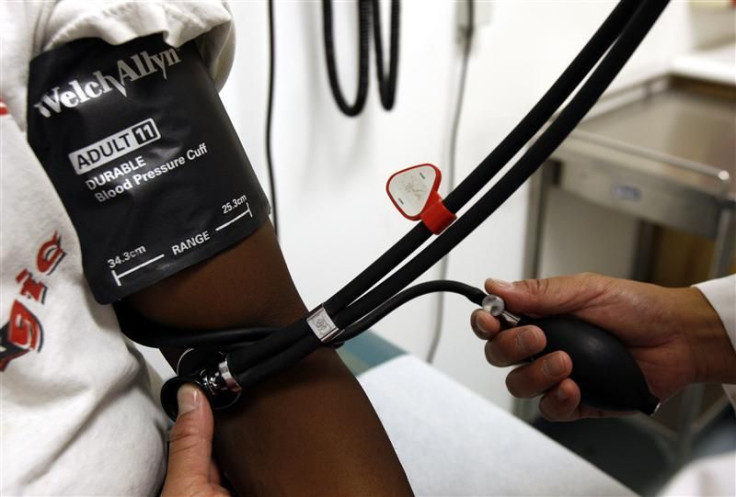30-Minute Procedure That Zaps Kidneys With Radio Waves Could Cure High Blood Pressure

A new surgical procedure that uses bursts of radio waves to destroy overactive nerves around the kidneys could help treat patients with uncontrollable high blood pressure whose condition cannot be controlled with medication.
Australian researchers say that the minimally invasive 30-minute procedure was found to be effective for at least six months.
More than 78 million adults in the U.S. suffer from hypertension, and about 9 percent of those patients have resistant hypertension, a major risk factor for heart disease and stroke. Patients affected by resistant hypertension often need to take one or more medications to control their blood pressure.
The minimally invasive procedure called catheter-based renal denervation involves doctors inserting a catheter through the artery in the patient's groin. Radio waves are then sent through the catheter to burn away nerve tissue around the kidney arteries that help control and filter salt in the body and may be overactive in patients with high blood pressure.
The team of researchers involved in the study, published Dec. 17 in the journal Circulation, believes that the promising procedure has the potential to revolutionize hypertension treatment and could spell the end of patients using pills to control blood pressure.
"Studies will soon determine whether this procedure can cure mild hypertension, producing permanent drug-free normalization of blood pressure," researcher Murray Esler, a professor and senior director of the Baker IDI Heart and Diabetes Institute in Melbourne, Australia, said in a statement.
"Based on the blood pressure declines achieved, reduction in heart attack and stroke rates of more than 40 percent is anticipated," Esler added.
Researchers said patients involved in the study had blood pressure reading of 160 or higher and were on three or more types of medication to control their blood pressure.
The latest findings revealed that systolic blood pressure was reduced by at least 10 millimeters of mercury in 83 percent of one group of patients six months after undergoing treatment and almost 79 percent of patients maintained such reductions a year after treatment.
"Participants' kidneys were not damaged or functionally impaired," Esler noted, adding that the study did not link any long-term negative effects to the procedure.
Published by Medicaldaily.com



























